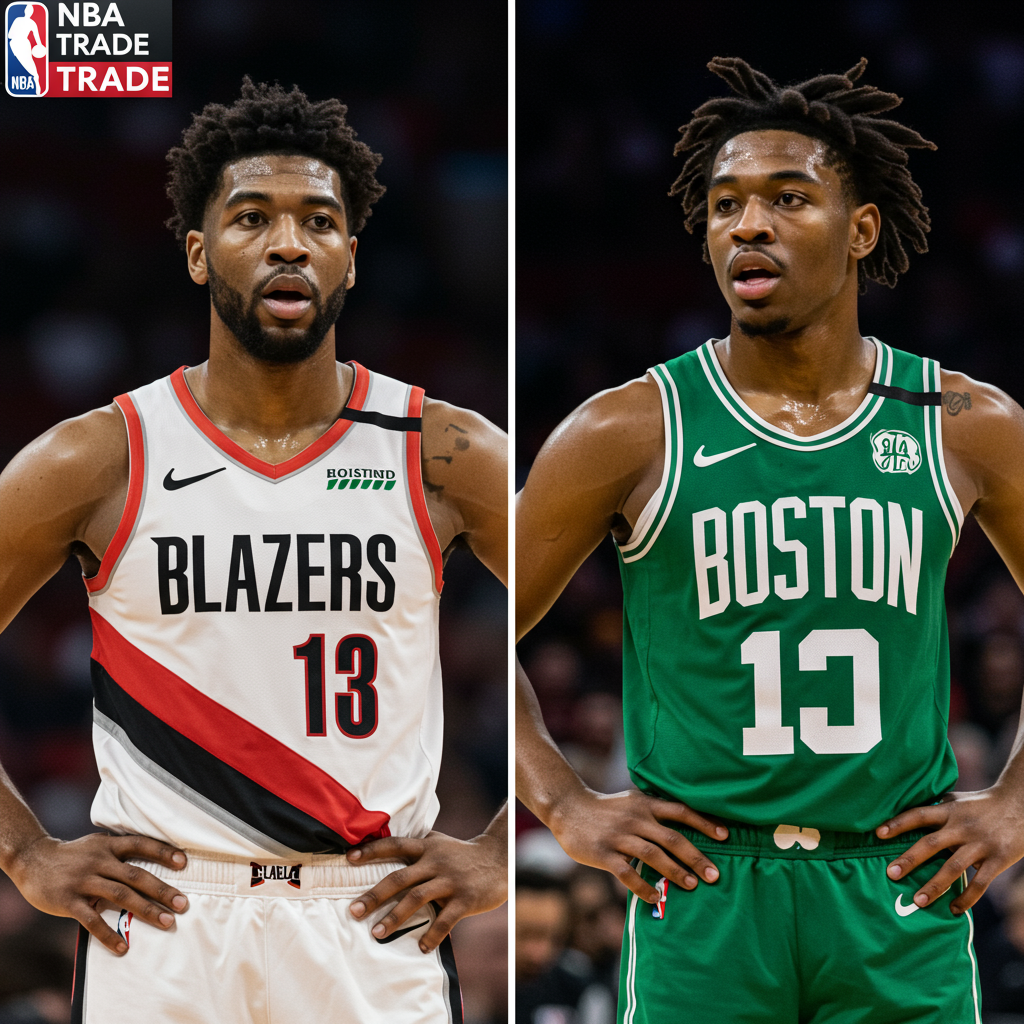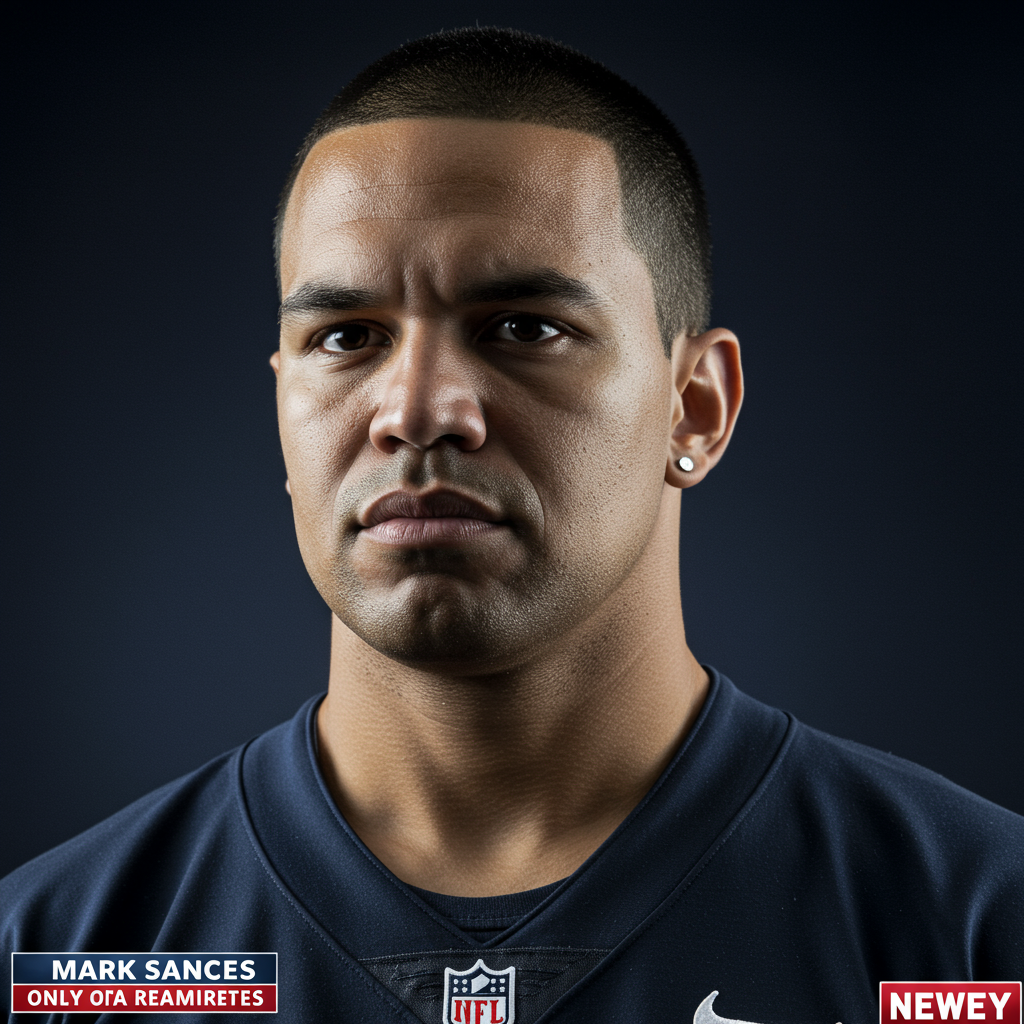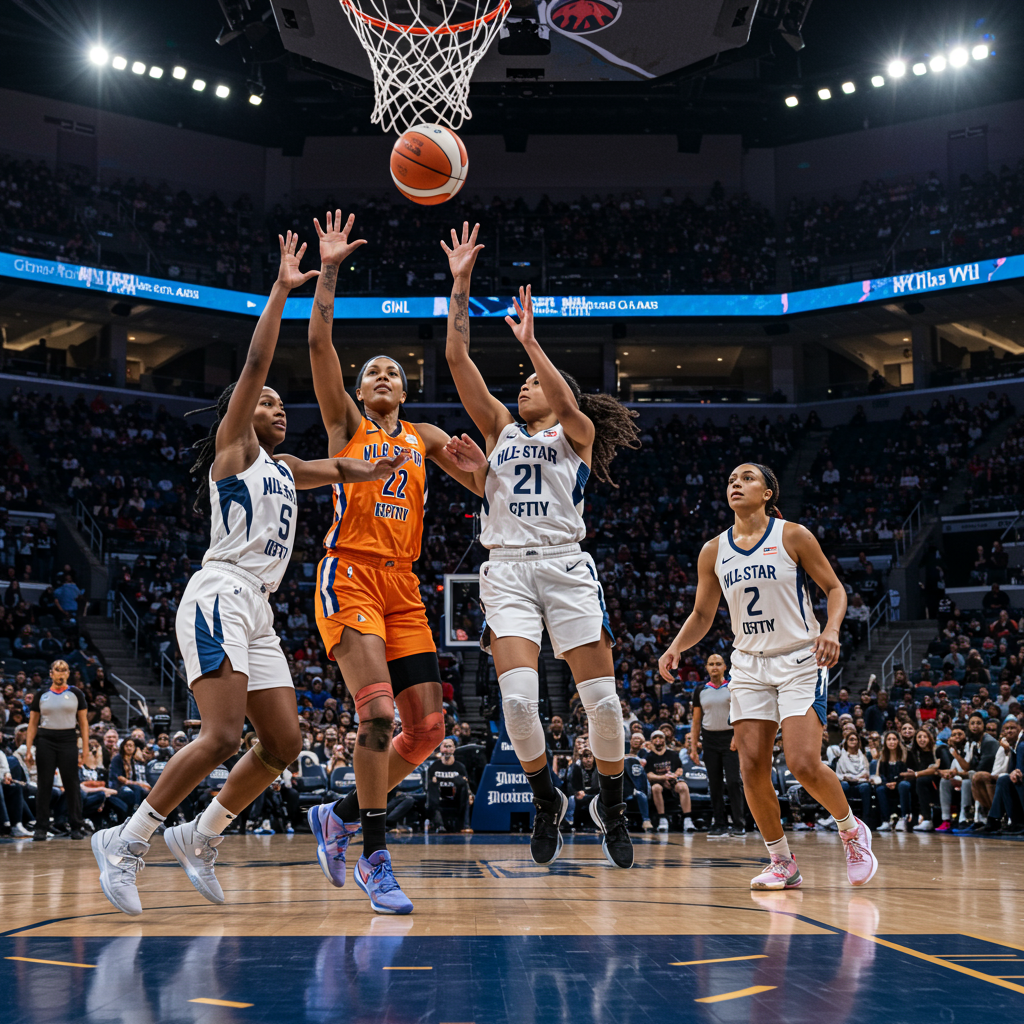A significant NBA trade unfolded on June 24th, 2025, sending two-time NBA champion Jrue Holiday from the Boston Celtics to the Portland Trail Blazers in exchange for scoring guard Anfernee Simons and two second-round draft picks. This move has triggered a wide range of reactions across the league, highlighting differing perspectives on its implications for both franchises.
For the Boston Celtics, the trade is widely viewed as a savvy financial maneuver, particularly in the wake of star Jayson Tatum’s expected season-ending Achilles injury, which necessitated shedding significant payroll. The Celtics successfully moved Holiday’s substantial contract, which carried over $100 million remaining over three years. According to analysts like John Hollinger of The Athletic, Boston achieved this without needing to attach a first-round pick, a scenario once thought likely to offload such a deal. Instead, they acquired Simons and draft capital.
While the immediate salary relief for the 2025-26 season is modest at $4.7 million, this trade, coupled with other cost-cutting deals like the Kristaps Porzingis move, helps Boston navigate the complexities of the second tax apron. Anfernee Simons, a dynamic 26-year-old shooting guard, brings a valuable offensive skillset to Boston. Averaging over 20 points per game in recent seasons with strong three-point shooting (38.1% career), he provides floor spacing and scoring punch that fits Coach Joe Mazzulla’s system. Simons is on an expiring $27.6 million contract, offering the Celtics flexibility – they could look to extend him at a potentially lower rate or utilize his salary for future trade matching as they continue roster adjustments driven by financial constraints. However, a major question surrounding Simons is his defense, an area analysts note opponents shot significantly better against him than expected, raising concerns about his fit in Boston’s defensively-minded backcourt identity forged by Holiday and Derrick White. Despite losing Holiday’s championship pedigree and off-court impact, obtaining assets and salary relief in a difficult situation is seen as a strategic win for the Celtics.
The perspective on the trade is far less unified for the Portland Trail Blazers, drawing reactions from “baffling” to “a necessary gamble.” John Hollinger labels the move baffling, arguing Portland should continue a youth-focused rebuild rather than trading a key offensive piece and draft capital for an aging veteran on a large contract. This view suggests the move prematurely places the burden of point guard duties squarely on Scoot Henderson, who has faced early struggles.
However, other reports suggest the Blazers’ decision is driven by immediate pressures. Aaron Fentress of The Oregonian and Sean Highkin of The Rose Garden Report highlight that top executive Joe Cronin and coach Chauncey Billups may be in a “must-win” situation with an impending ownership change. Avoiding another losing season to secure their positions appears to be a primary motivator. Making the postseason became a stated goal after the team’s improved finish the prior season. From this viewpoint, acquiring Jrue Holiday, despite his age (35) and remaining contract (over $104 million), is seen as a move to immediately elevate the team.
Furthermore, Holiday is described as the type of tough, defensive-minded guard and locker room leader Billups has sought since the Damian Lillard trade. By moving Simons, Cronin is effectively doubling down on the decision to build around Scoot Henderson, who was drafted over Lillard, and now potentially choosing Henderson over Simons as the primary lead guard. There’s debate whether Holiday would start or come off the bench behind Henderson, though some expect him in the starting lineup.
Despite these potential motivations, many analysts remain skeptical of Portland’s strategy. Concerns include the high cost and long duration of Holiday’s contract, potentially becoming a financial burden as he ages, and the loss of significant future salary cap flexibility (potentially $50 million in 2026) that Simons’ expiring deal offered. Trading valuable assets for an aging player, especially when the trading partner was financially motivated to unload salary, is seen as questionable and potentially risks “short-circuiting” the rebuild by pushing for modest success now rather than building for the future.
Finally, there were initial reports via a source to Steve Bulpett of Heavy.com suggesting Jrue Holiday was unhappy about being traded to Portland and would prefer to be elsewhere. While the source indicated Holiday would remain professional if he stays, the idea of him being immediately re-traded was floated. However, multiple analysts and reports expressed skepticism about this claim, arguing it contradicts the logic of the Blazers trading assets to acquire him and should be taken with a grain of salt without further corroboration.
In summary, the Jrue Holiday-Anfernee Simons trade is a complex transaction viewed largely favorably for the Celtics as a financial and asset-gaining move, while drawing mixed and often skeptical reactions for the Blazers, who appear to be prioritizing immediate competitiveness and job security over a pure long-term rebuild, despite the potential costs involved.




